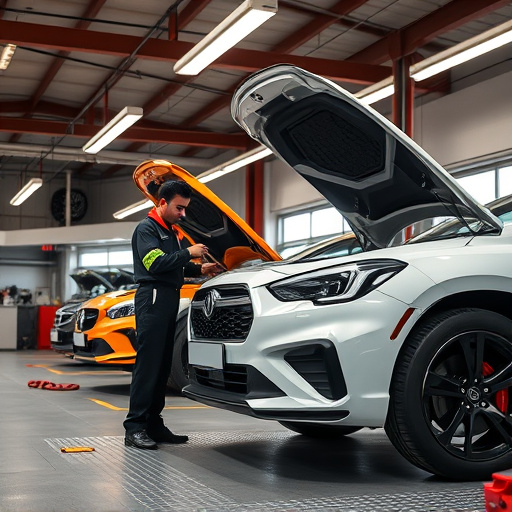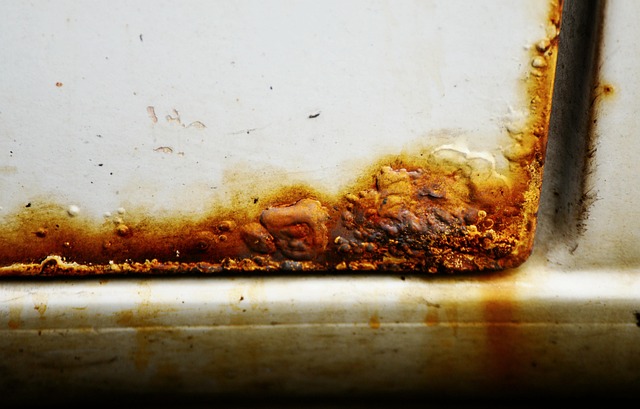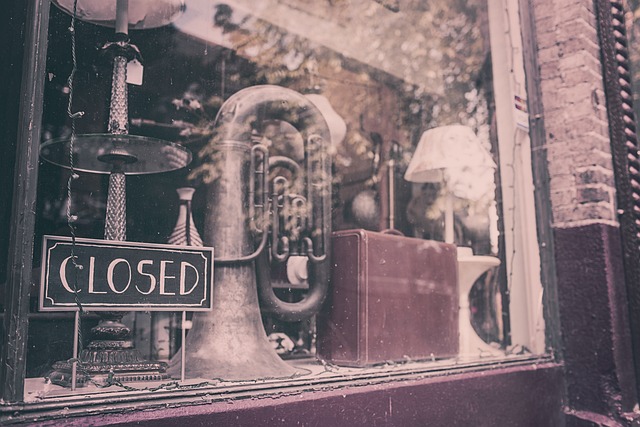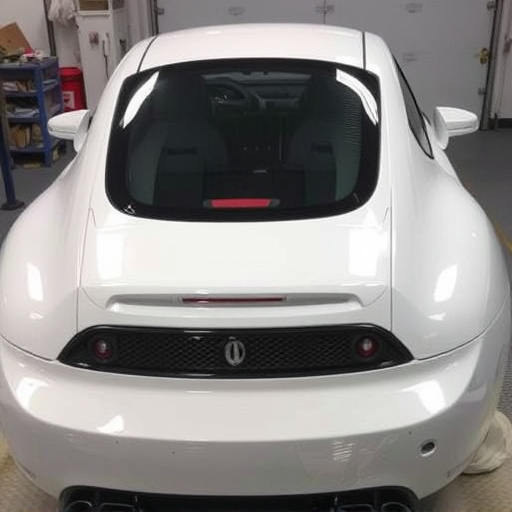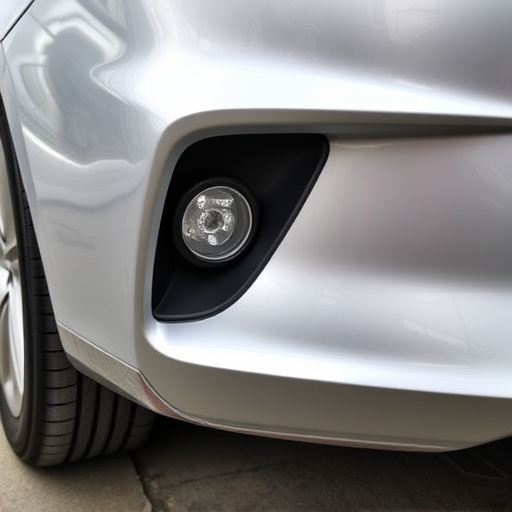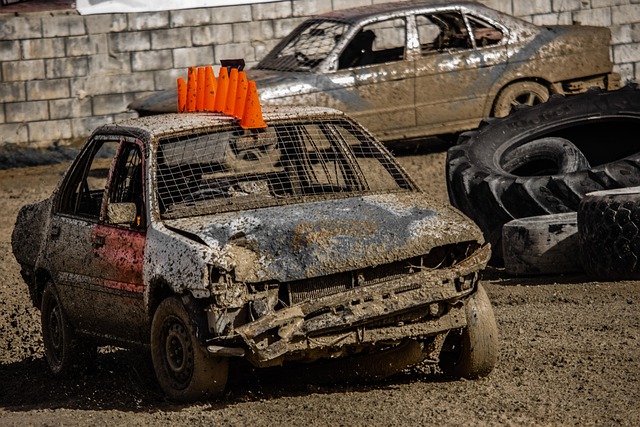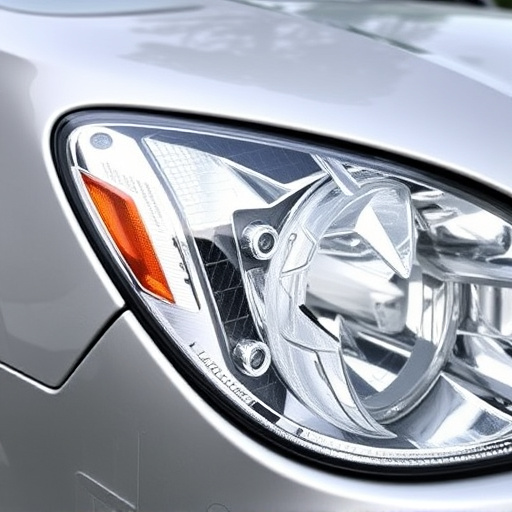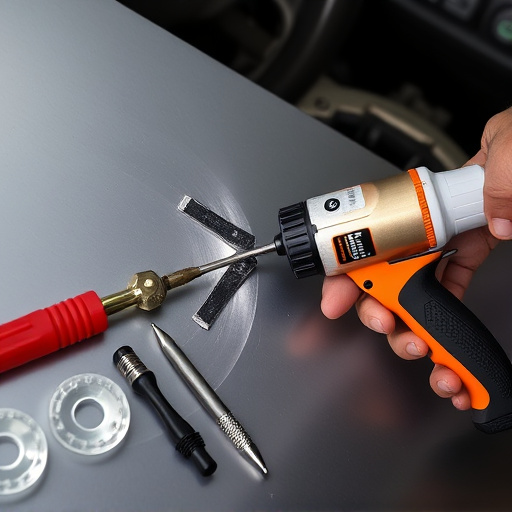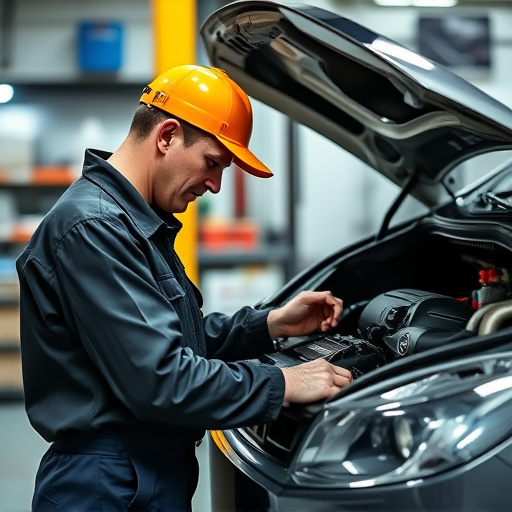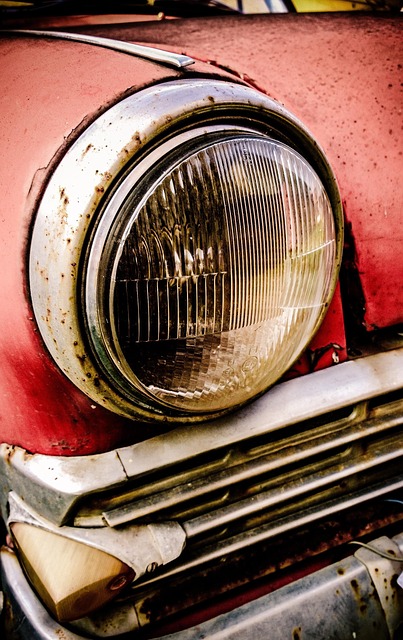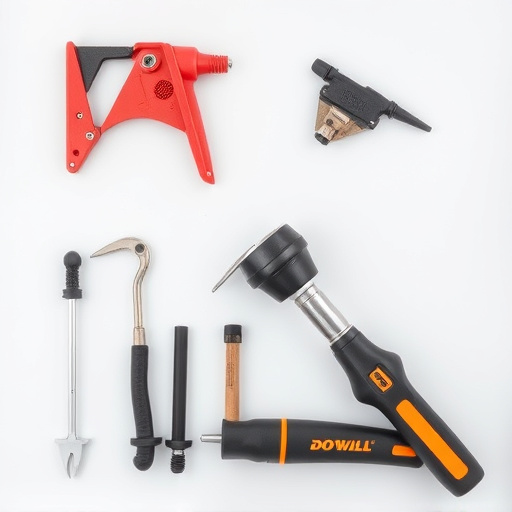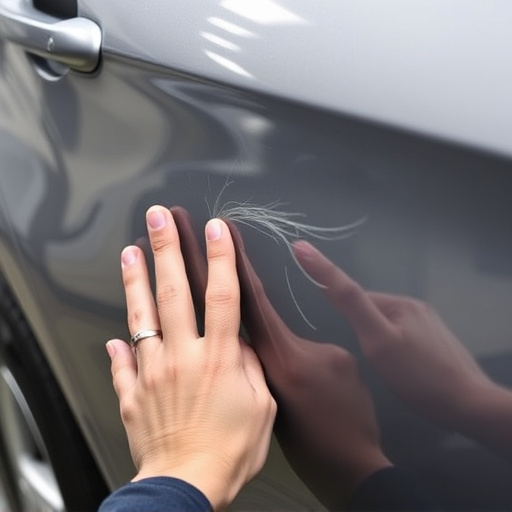Collision damage can severely affect a vehicle's cooling system, comprising components like engine block, radiators, fans, and hoses. Even minor accidents may cause dents, cracks, or leaks, reducing heat dissipation efficiency. Proper evaluation and skilled collision repair are essential to restore the cooling system to optimal condition, preventing further severe problems in luxury vehicles. Common issues include leaks, dislodged sensors, and deformations in bodywork affecting airflow. Timely assessment and car body repair prevent these indirect impacts. Effective cooling system collision repair maintains vehicle performance and longevity through detailed diagnostics, high-quality part replacements, and system flushes, ensuring smooth driving operation.
A car crash can leave more than just visible damage. The impact of a collision can significantly affect your vehicle’s internal components, including the cooling system. This article explores how collision damage influences your car’s ability to regulate temperature, highlighting common issues like leaky radiators and failed fans. We provide insights into effective cooling system repair strategies post-collision, emphasizing the importance of prompt professional intervention for optimal vehicle performance and safety. Learn about collision damage management, focusing on minimizing disruptions to your car’s vital cooling system.
- Understanding Collision Damage Impact on Cooling System
- Common Cooling System Issues After a Crash
- Effective Cooling System Repair Strategies Post-Collision
Understanding Collision Damage Impact on Cooling System
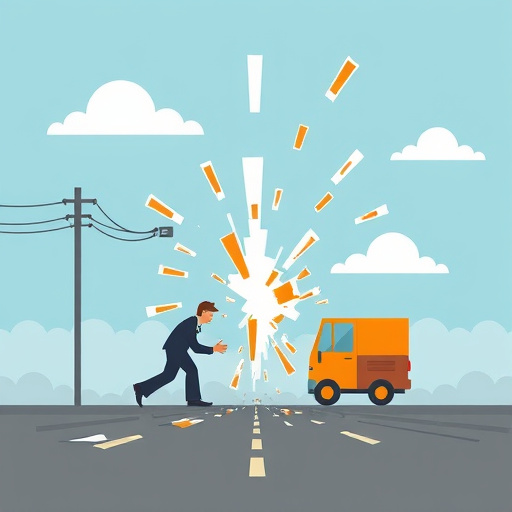
Collision damage can significantly impact your vehicle’s cooling system, a crucial component for its overall performance and longevity. During a collision, various parts of your car may be affected, including the engine block, radiators, fans, and hoses—all integral pieces of the cooling system puzzle. Even minor accidents can cause dents, cracks, or leaks in these components, leading to reduced efficiency in dissipating heat from the engine.
Proper evaluation and collision repair are essential to restore your car’s cooling system to its optimal state. Skilled auto body repairs specialists understand that addressing these issues promptly is vital for preventing more severe problems. Whether it’s a simple fix or a complex car restoration, ensuring the cooling system is in top condition is key, especially for luxury vehicle repair where precision and quality are paramount.
Common Cooling System Issues After a Crash
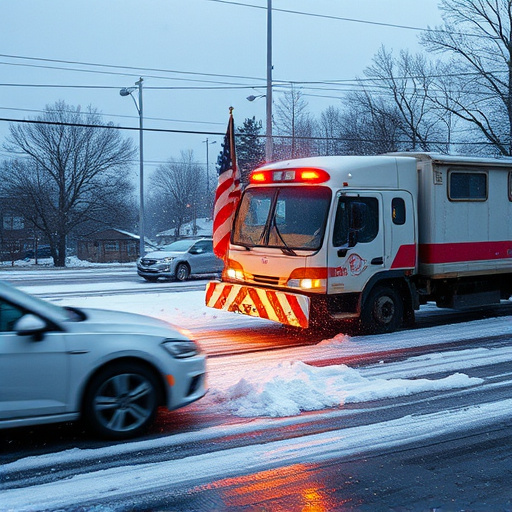
After a collision, your vehicle’s cooling system can suffer significant damage, often overlooked during initial assessments. Common issues include leaks in the radiator, hoses, and coolant reservoirs—resulting from either punctures or weakened joints due to the impact. The force of a crash can also dislodge or crack temperature sensors, affecting the accuracy of the engine’s temperature readings.
Furthermore, severe accidents may cause dents or deformations in the vehicle bodywork, which could indirectly affect the cooling system’s performance. For instance, a dented hood might obstruct airflow to the radiator, or a damaged fender could encroach upon the space required for the coolant reserve tank. Timely collision damage assessments and subsequent car body repair are crucial to prevent these issues from escalating and compromising the vehicle’s overall functionality, especially concerning its cooling system.
Effective Cooling System Repair Strategies Post-Collision
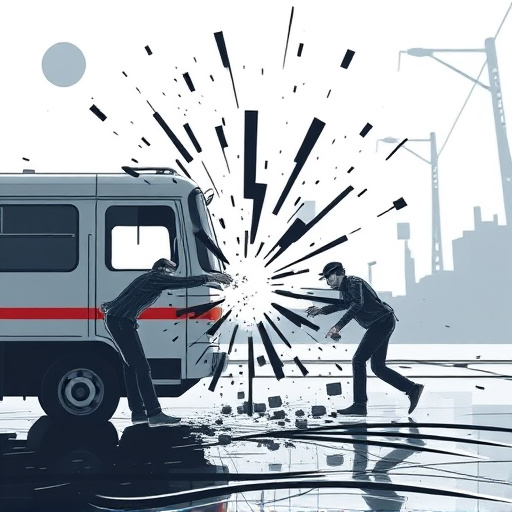
After a collision, proper cooling system repair is crucial for your vehicle’s longevity and performance. The initial assessment should focus on identifying any leaks or damage to components like radiators, water pumps, and thermostat housing. A professional mechanic can perform detailed diagnostics using advanced tools to ensure every part of the system is functioning optimally.
Effective cooling system repair strategies involve replacing damaged parts with high-quality, OEM (Original Equipment Manufacturer) alternatives. This ensures compatibility and longevity. In severe cases, a complete system flush may be necessary to remove any contaminants introduced during the accident. Additionally, a careful inspection of the bumper and surrounding areas is essential as these can impact airflow and potential damage to vulnerable cooling system components. Remember, timely automotive collision repair, especially for your car’s cooling system, is vital to prevent more serious issues down the line, ensuring smooth operation during driving.
A vehicle’s cooling system is a crucial component that, when damaged in a collision, can lead to serious performance issues and even safety hazards. Understanding the potential impact of collision damage on your car’s cooling system is essential for effective collision repair. By being aware of common issues like radiator leaks, fan malfunctions, and thermal overload, you can ensure timely repairs to maintain optimal engine temperatures. Prompt action in collision damage repair, focusing specifically on the cooling system, not only safeguards your vehicle’s longevity but also ensures a safer driving experience. Remember, professional cooling system collision repair strategies are key to restoring your vehicle’s efficiency and reliability on the road.
